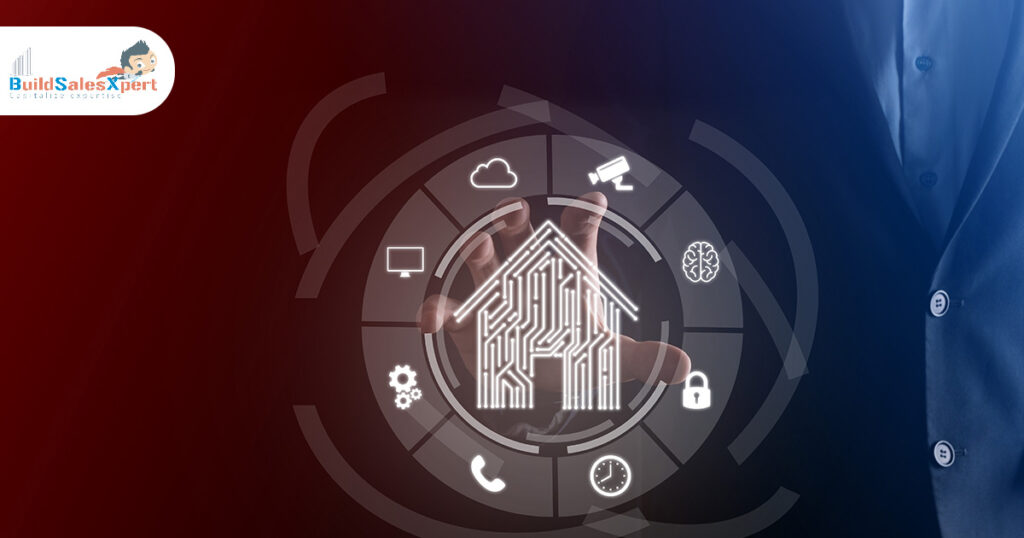The real estate industry has been a bit of a latecomer to the technology party, but that’s quickly changing. Any reluctance to change legacy processes that worked well in the past is quickly giving way to new, innovative solutions as a new generation of real estate professionals and owners take the reins from their predecessors. In this article we look at some of the latest technology solutions that real estate businesses can—and in many circumstances, already are—leverage the power of technology to improve every aspect of their business from sales to operations.
Automated rental/sales properties platforms
These are digital platforms that streamline the process of selling or renting out properties. Typically, the developer or owner needs to do is create a listing for their property on the platform, including details such as the location, size, amenities, and other features of the property.
Potential customers/tenants/buyers search use the platform to search for properties that meet their needs, based on criteria such as location, size, and price. On finding suitable properties, customers can book them directly through the platform, with the platform mediating all payments and handling communication between the buyer and property owner. It also handles financial transactions between the tenant and property owner, including rent payments and security deposits, and provides a secure and centralized communication channel for both parties.
Support: in the event of any disputes such as handling maintenance issues, the platform supports both the tenant and property owner.
Overall, automated property platforms offer a more efficient and convenient way for property owners to sell/rent out their properties and for buyers/tenants to find and book properties. By streamlining processes, automated platforms ease the rental process, making it more convenient, secure, and accessible for everyone involved.
Virtual Tours of Houses and Apartments
Touted as The Future of Real Estate, virtual tours are a digital innovation, ideal for armchair buyers. They are a great help in pre-qualifying homes. There’s nothing more disappointing than driving from one property to another, only to find that the homes aren’t what you expected. Virtual tours are an innovative solution to this problem.
Gone are the days of wasting time and money on fruitless property visits. With virtual tours, you can now eliminate properties from your list of potential purchases simply by taking a virtual tour of the property. This is one of the main tech trends in real estate for 2023 and is sure to revolutionize the way you shop for your dream home.
Of course, there’s no substitute for a physical tour of a property, but virtual tours can save you time and money in finding the right fit. Thanks to cutting-edge VR technologies, virtual tours are now more realistic than ever, allowing you to examine the property’s condition, interior details, and even furniture. And with real estate photo editing services, the photos you see are as true to life as possible.
In conclusion, virtual tours are the future of real estate, making the search for your dream home easier, more convenient, and cost-effective.
Conversational AI
Real estate customers, like any other consumer, expect the best service, and conversational AI offers an amazing experience using technology. It provides quick, round-the-clock access to support, with fast response times and minimal errors. And with no employees to pay, it’s a big cost saving.
This innovative technology is set to revolutionize the real estate industry in 2022. Conversational AI goes beyond traditional chatbots to provide a fully automated service desk that delivers a near-sentient experience that can meet the high expectations of customers. Deloitte describes conversational AI assistants as purpose-built, highly capable, and integrated into the end-to-end processes of the enterprise.
With conversational AI, real estate customers can expect quick and efficient support 24/7, reduced wait times, and a low risk of errors. With its ability to make it easier and more convenient for real estate customers to get the help they need, whenever they need it. There’s no denying that this technology is the future of customer service. It’s not a question of ‘if’ but ‘when.
Blockchain
You’ve probably heard about blockchain technology. But did you know its impact on the real estate industry? It may not be an obvious connection, but blockchain is already making waves in the real estate world.
Most people know of and understand blockchain’s association with cryptocurrency, but it has the potential to be used in a lot of other applications for a variety of industry sectors, including real estate. With blockchain, transactions can be verified and kept secure, so there’s no risk of tampering with financial records.
Blockchain can also be used for fractional property investments, allowing landlords to sell portions of their holdings (think Sole-seller). And, it can also securely store important real estate documents, like property titles.
There’s still so much untapped potential for using blockchain in real estate, making it one of the top real estate tech trends for 2022. The truly amazing this is the human ingenuity that took a technology created for cryptocurrency and used it to create a big impact on the real estate industry.
Internet of Things (IoT)
Our homes nowadays are filled with smart devices. These are simply devices that use the internet, Bluetooth, or similar technology to connect to other objects using sensors. This is known as the Internet of Things (IoT) and its changing the way we live by making everything more convenient and enjoyable. Businesses in the real estate market have already begun to adopt this technology to create what is known as the smart home.
Smart homes have three main features: smart amenities, connectivity, and community management.
Smart amenities include things like smart lights, locks, and home cleaning services.
Connectivity simply means that all the devices in a smart apartment can talk to each other and to the building systems. This makes everything more connected, faster, and more efficient. Community management includes features like resident assistance, event calendars, and on-demand services. These help residents save time and money and make the community stronger.
This trend is seen in new construction, but it can even be retrofitted in older buildings to create smart apartments.




Excellent article.
All the very best.